Filing taxes can be complex and daunting, but it also presents an opportunity to maximize your refund and potentially save money. With proper planning and strategic decision-making, you can optimize your tax return and keep more of your hard-earned money. This article will explore the top strategies for maximizing your refund and provide valuable tips to help you confidently navigate the tax-filing process.
Timing is Key
Understanding the impact of timing can be instrumental in maximizing your refund. Ensure you file your tax return before the deadline to avoid penalties and interest charges. Filing early allows you to receive your refund sooner, giving you more time to plan and allocate your funds wisely. Additionally, implementing tax planning strategies throughout the year can position you for maximum tax savings.
Take the time to review your previous tax returns, especially if you’ve identified possible missed deductions or credits. You may be able to file an amended return to correct errors or claim missed opportunities. If you ask yourself, “how far back can you amend a tax return?” then consult with a tax professional. They will be able to determine if amending a previous return is appropriate.
If you have investments, consider the timing of selling assets to optimize your capital gains and losses. By strategically selling investments, you can offset gains with losses, potentially reducing your taxable income. Lastly, contributions to retirement accounts, such as IRAs and 401(k)s, can be made until the tax filing deadline for the previous year. If you haven’t maximized your contributions, consider making additional contributions before the deadline to reduce your taxable income in the prior year.
Take Advantage of Tax Deductions
One of the most effective ways to maximize your refund is by taking advantage of tax deductions. Deductions reduce your taxable income, resulting in lower tax liability. Some standard deductions include:
- Itemized Deductions: Rather than claiming the standard deduction, consider itemizing deductions if they exceed the typical deduction amount. This may include deductions for mortgage interest, state and local taxes, medical expenses, and charitable contributions.
- Education-related Deductions: If you or your dependents are pursuing higher education, explore deductions such as the American Opportunity Credit or Lifetime Learning Credit, which can help offset education expenses.
- Business Expenses: If you are self-employed or own a small business, claim all eligible business expenses, such as office supplies, travel, and professional services.
Leverage Tax Credits
Tax credits directly reduce your tax liability, making them highly valuable for maximizing your refund. Here are some key tax credits to consider:
- Earned Income Tax Credit (EITC): The EITC is a refundable credit available to low- to moderate-income individuals and families. It can provide a significant boost to your refund, so make sure to check if you qualify.
- Child Tax Credit (CTC): If you have dependent children, you may be eligible for the CTC, which can provide substantial tax savings. Additionally, the recently expanded Child Tax Credit offers even more benefits for families.
- Energy Efficiency Credits: You may be eligible for energy tax credits if you have made energy-efficient improvements to your home. This includes installing solar panels or energy-efficient appliances. These credits can help offset the costs of environmentally friendly upgrades while reducing tax liability.
Consider Tax-Advantaged Savings Accounts
Tax-advantaged savings accounts offer an excellent opportunity to optimize your tax return. Two popular options are Health Savings Accounts (HSAs) and Flexible Spending Accounts (FSAs). If you have a high-deductible health plan, consider contributing to an HSA. Contributions are tax-deductible, and withdrawals for qualified medical expenses are tax-free. HSAs provide a triple tax advantage, making them a powerful tool for maximizing tax savings. On the other hand, FSAs allow you to set aside pre-tax dollars for eligible medical expenses. By estimating your yearly medical costs and contributing accordingly, you can reduce your taxable income and increase your refund.
● Contribute to Retirement Accounts
Contributing to retirement accounts helps secure your financial future and provides immediate tax benefits. Contributions to certain retirement accounts, such as Traditional IRAs and 401(k)s, are typically tax-deductible. Maximizing your contributions can lower your taxable income and potentially increase your refund.
Keep Accurate Records and Receipts
Maintaining accurate records and receipts is essential for maximizing your refund. By documenting all eligible deductions and credits, you can ensure you claim everything you’re entitled to. Keep track of expenses related to medical bills, education, business activities, and charitable contributions. Maintain organized records and save digital copies to avoid potential issues or disputes with the tax authorities. Utilize reliable tax software or online tools to streamline the tax preparation process. These resources can help you accurately input your information, identify potential deductions, and ensure your calculations are error-free. Be cautious when choosing tax software and opt for reputable options that provide updates and support throughout the filing process.
Seek Professional Guidance
Tax laws and regulations can be complex and ever-changing. Seeking professional guidance from a tax advisor or certified public accountant (CPA) can help you navigate the intricacies of the tax code and identify opportunities for maximizing your refund. A tax professional can provide personalized advice based on your unique financial situation, ensuring you take advantage of all available deductions, credits, and strategies. Tax laws are subject to changes and updates, so staying informed about any new regulations that could impact your tax return is crucial. Regularly check for updates from the Internal Revenue Service (IRS) or consult a tax professional to understand any changes that may affect your filing status, deductions, or credits.

Maximizing your refund requires careful planning, attention to detail, and proactive decision-making. By implementing the strategies mentioned above, such as taking advantage of deductions, leveraging tax credits, contributing to retirement accounts, considering tax-advantaged savings accounts, understanding timing, keeping accurate records, seeking professional guidance, staying informed, reviewing prior returns, and using reliable tax software or tools, you can optimize your tax return and potentially increase your refund. Remember that every taxpayer’s situation is unique, and consulting with a tax professional is crucial to ensure compliance with tax laws and to identify personalized strategies for maximizing your refund. Take control of your tax return and make informed decisions to keep more of your hard-earned money in your pocket.













